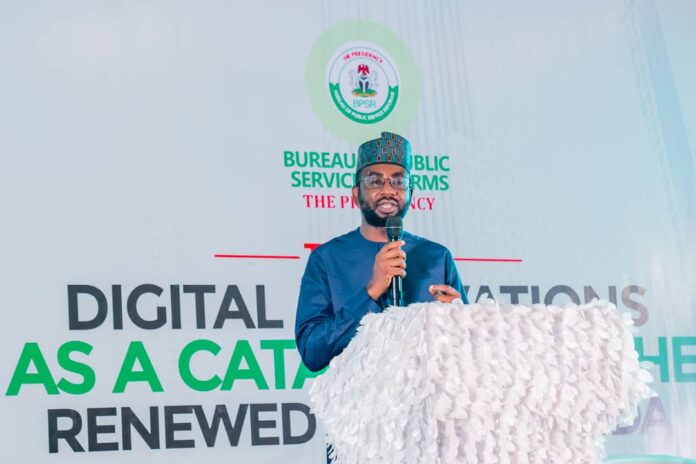The Director General of the National Information Technology Development Agency (NITDA), Kashifu Inuwa, has emphasized that embracing technology and digital solutions is essential for improving service delivery and modernizing governance in Nigeria.
By Chimezie Godfrey
The Director General of the National Information Technology Development Agency (NITDA), Kashifu Inuwa, has emphasized that embracing technology and digital solutions is essential for improving service delivery and modernizing governance in Nigeria.
Speaking at the Nigeria Govtech Conference and Awards in Abuja, organized by the Bureau of Public Service Reforms (BPSR), Inuwa stated that digitizing government services is vital for the country’s economic growth. He explained that by utilizing technology, Nigeria can implement policies and programs more effectively, thus promoting development. This, he added, aligns with the Federal Government’s goal of creating a digital economy for all citizens.
Inuwa highlighted the need for a comprehensive strategy that focuses on human capital development, digital literacy, and skills training in both formal and informal sectors. He stressed that digital innovation and transformation are key to fostering economic growth and empowerment, and that these efforts will support the President’s Renewed Hope Agenda by strengthening institutions and improving citizens’ lives through technological adoption.
NITDA’s Strategic Roadmap and Action Plan 2.0 (SRAP 2024-2027) outlines eight pillars: fostering digital literacy and talent cultivation, building a strong technology research ecosystem, strengthening policy implementation, promoting inclusive digital infrastructure, enhancing cybersecurity and digital trust, nurturing an innovative ecosystem, forming strategic partnerships, and creating a dynamic organizational culture with an agile workforce.
Inuwa further explained that under the “foster digital literacy and cultivate talents” pillar, NITDA aims to accelerate transformation through human capital development. By 2030, the agency projects a 95% digital literacy rate, with a goal of reaching 70%




